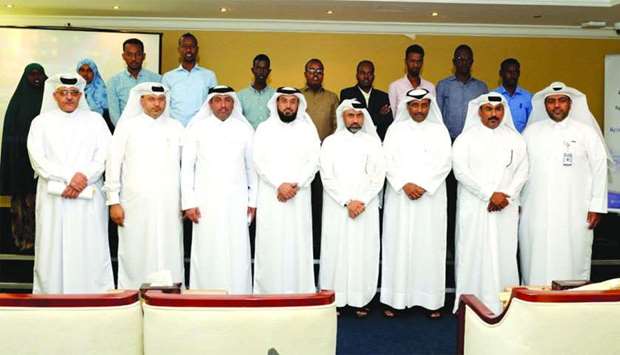A series of training courses organised by the Ministry of Municipality and Environment (MME) for a group of researchers and employees of the Somali Ministry of Agriculture, started on Sunday and will continue until September 26.
Hamad Saket al-Shammari, director, Agricultural Research Department at the MME, said that Qatar has spared no effort in supporting and participating in various activities that promote agriculture in the Arab world.
Al-Shammari said that the participants from the Somalia will be briefed on the latest findings on plant and animal research in Qatar and how to implement modern methods in agriculture, to achieve national food security, and thus provide the economy with an important social and economic resource.
He expressed his hope that these courses would achieve the maximum benefit in terms of exchanging information and experiences between participants and experts of Qatar in the agriculture field.
“These training courses aim to develop the capabilities of Somali engineers, experts and researchers in the sectors such as vegetable production, palm tree care, crop conservation, post-harvest operations, livestock development and protection from communicable and transmitted diseases,” Al-Shammari told reporters.
Participants will be briefed on the experiences of Qatar in these fields, which include the techniques of palm cultivation and pollination with liquid instead of traditional pollination operations, in addition to modern irrigation techniques, date drying and other new methods in the field, he said.
He stressed that Qatar has achieved great successes in the field of irrigation techniques under the soil and modern fertilisation methods and the process of drying dates, revealing that the production of tomatoes will soon be launched in 3 greenhouses in order to grow tomato types able to adapt to environmental conditions in Qatar.
The director pointed out that in the field of livestock research the department is in the process of preparing a "nucleus herd" in Qatar during which the focus will be on vaccinating the livestock in different environmental conditions in order to know the impact of weather conditions and high temperatures on livestock in the country.
Masoud Jarallah al-Marri, director, Food Security Department at the MME, said in remarks that the concept of food security means how food should be provided to the entire population in terms of affordable prices and ease of access.
Al-Marri explained that Qatar's national strategy for food security relies on four axes, including local production, strategic storage, international trade and the local market, pointing out that the participants will be introduced to these axes and initiatives included in each axis to benefit from the experience of Qatar and develop their expertise in the field of strengthening food security system in Somalia. (QNA)

